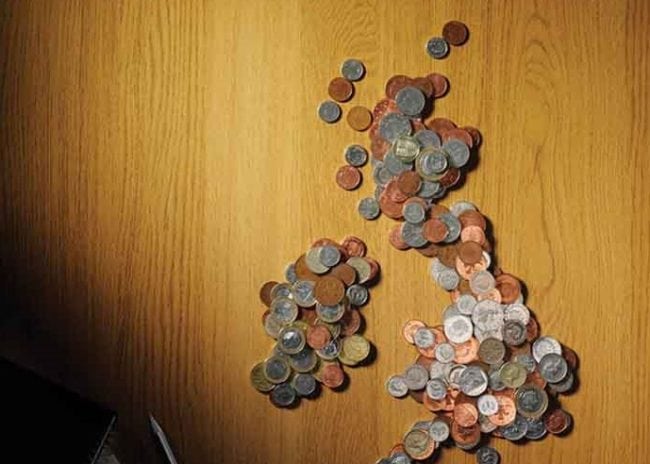Brexit uncertainty may outweigh currency effects in the UK large-cap index if the country exits from the European Union with no deal.
The pound fell to a 30-year low of $1.30 in the immediate aftermath of the Brexit vote and fell close to $1.20 over the following six months. In contrast, the FTSE 100, with approximately three quarters of its revenue coming from overseas earnings, rallied strongly.
But Shore Financial Planning director Ben Yearsley reckons this inverse relationship is starting to falter.
Yearsley thinks the FTSE 100 and the pound could both fall if the UK exited the EU with no deal. “If sterling went from $1.30 to $1.15, would the FTSE go up 8%? I can’t see it. The uncertainty level around that is different to the referendum uncertainty. At that point, we didn’t know when we were going to have Brexit, it could have been years and years off, and therefore in the short term, currency falls are really good for the market.”
Mathematics will drive the FTSE
Others are doubtful about a significant FTSE sell-off on a disorderly Brexit.
“Clearly there will be concerns about Brexit, but equally two thirds of FTSE 100 earnings don’t come from the UK,” says AJ Bell investment director Russ Mould. “There will still be a mathematical element to it whereby if the currently is thumped down I still think you’ll find someone, somewhere who finds it an intriguing proposition on a valuation basis, particularly if the currency goes down as well. The UK still has the rule of law, it still has an independent central bank.”
But August already showed signs the negative correlation between the FTSE and the currency is breaking down, said Yearsley.
He noted sterling fell over 3% against the dollar mid-month when no deal Brexit fears reached their peak, yet the FTSE didn’t respond with a move upward. He said the index and currency both moved upwards towards the end of the month when chief EU negotiator Michel Barnier suggested a deal was nearing that would be unlike anything struck with any other country.
“Maybe it was a simple case of those no-deal fears outweighing what normally happens when sterling falls and the FTSE goes up,” he says.
Buy into narratives at your peril
The multi-asset team at Hermes Investment Management has a view on how sterling, linkers and gilts could react to a disorderly Brexit, but not the FTSE.
“There tend to be narratives around correlations that they’re stable. But correlations are not stable,” says Tommaso Mancuso, head of multi-asset at the fund house.
Generally, the correlation between the pound and the FTSE has been negative over the last 30 years, however, during risk-off periods that relationship has often turned positive, Mancuso says. He points to the global financial crisis, the eurozone crisis and the 2015 summer sell off as periods during which the FTSE/sterling correlation was positive.
In the case of a no deal Brexit, he expects the pound would fall below lows seen in 2016, whereas linkers would rally due to the currency effect on inflation. Gilts would also rally due to expectations of a less hawkish Bank of England.
Sterling could rally on disorderly Brexit
The market could deliver an inverse reaction to the referendum result, says Mould.
“In the short term it will be down to near-term positioning, further out it will be down to valuations and where did the pound get to and the yield and the earnings multiple on the FTSE,” says Mould.
The pound could even rally, he says.
“You’d think intuitively that people were more likely to be short than long if there was no deal. If you get to a position in late March next year where no deal is looking likely then the catalyst is over and the shorts all close so the pound goes up,” he says.
FTSE shake-up from Brexit deal
The FTSE 100 is likely to see a sudden change in leadership if currency rallies on the back of Brexit progress and a market-friendly deal, Mould adds.
“All the laggards you’ve seen, like the real estate, the retailers and the domestic players, you’d expect them to start taking the lead. The problem is they’re not as big or as influential as the others.”
Overall, he says currency strength would “make life a bit harder” for the index.
Portfolio positioning in the face of Brexit uncertainty
Overseas assets rather than the FTSE is where investors should be positioned to protect against Brexit risk, says Yearsley. “You want US, you want Asia, you want Japan and arguably Europe, depending on the hit from no deal Brexit.”
Hermes has small FTSE exposure via futures, plus a basket of European stocks, including the UK, based on factors they are targeting across value, momentum, market cap and quality. It is long linkers and short gilts.
Regarding currency, Mancuso adds: “We are generally short the pound, but not necessarily related to Brexit and more related to the fact Europe is not faring as strongly as it did a year ago. We expect the current flows out of Europe into the US to continue.”










